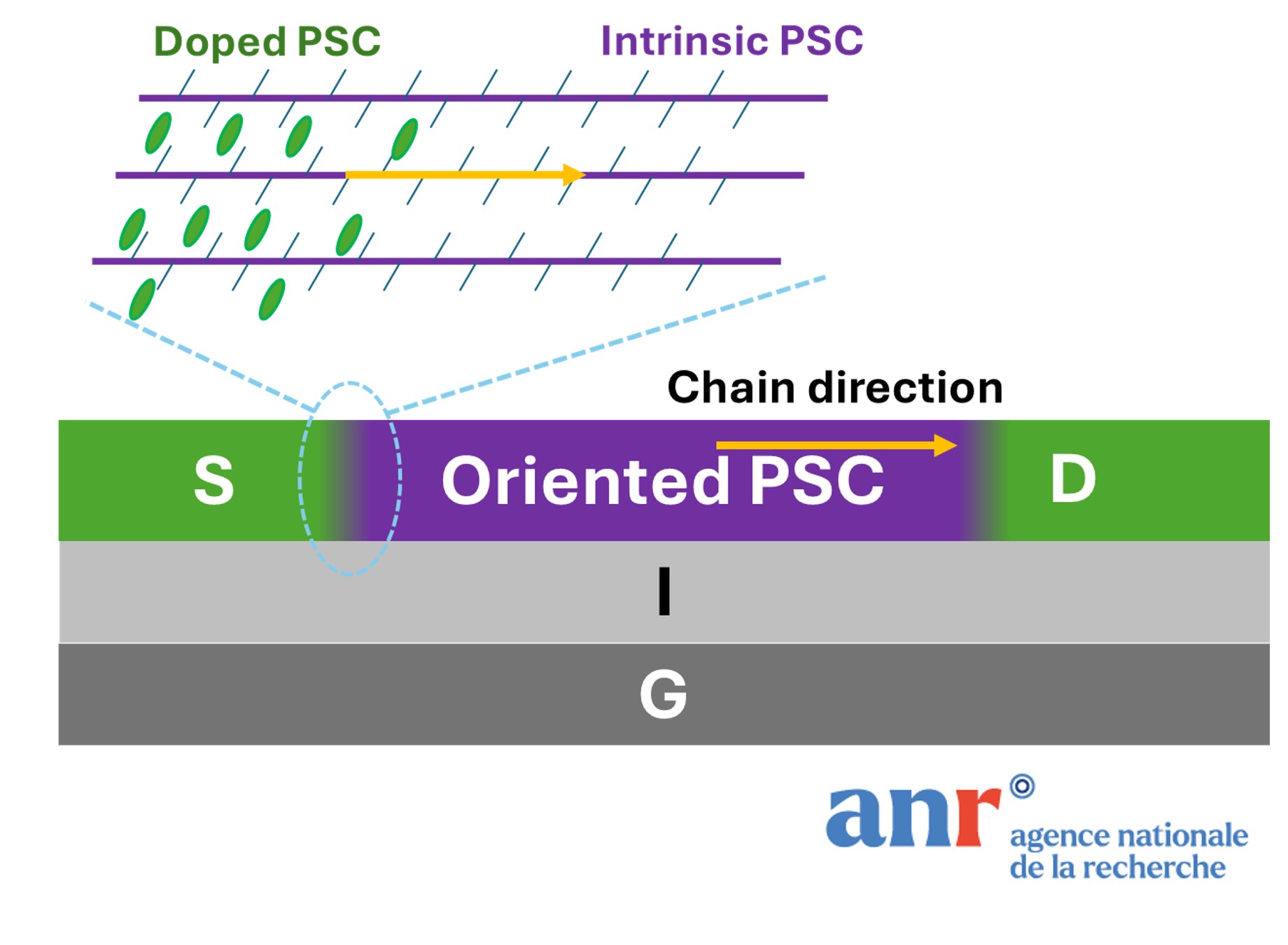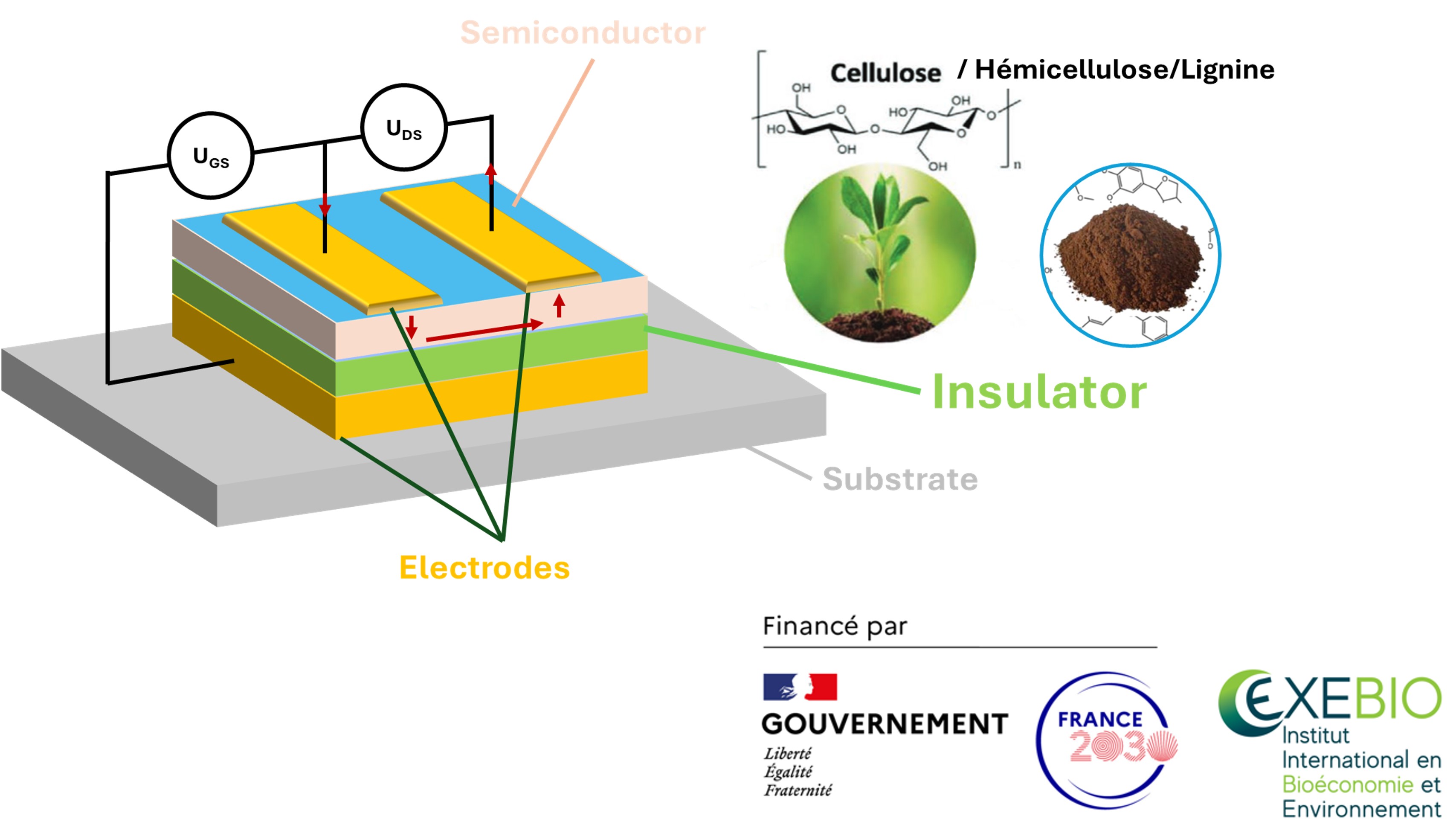The SMOOTH project targets challenges in organic thin-film transistors (OTFTs) for efficient, sustainable, and cost-effective electronics. Current reliance on inorganic components, especially metals, raises concerns about resource scarcity and environmental impact. Additionally, the metal/organic semiconductor interface limits OTFT operation. SMOOTH proposes an innovative "all-organic" design, replacing metal/polymer heterojunctions with homojunctions. It focuses on metal-free printed devices, using oriented polymer semiconductor (PSC) channels and doped PSC areas for source and drain electrodes.
The consortium comprises experts in polymer s processing, macromolecular engineering, OTFT fabrication, and near-field techniques. SMOOTH aims to demonstrate that the homojunction can be used to realize very efficient S&D electrodes for OTFTs, metal-free OTFT capable of 10,000 ON/OFF cycles in ambient conditions, with reduced contact resistance and enhanced stability of doped PSCs under electrical bias. The proposed methodology includes aligning doped PSCs via high-temperature rubbing and fabricating conducting electrodes through ink-jet printing and/or vapor phase doping.
SMOOTH's success is anticipated to significantly contribute to a sustainable technological future, expanding the market for various applications targeted by organic electronics. Aligned with the call's strategic goals, it advances knowledge on polymer-based materials for specific applications, involving a multidisciplinary team of chemists, physical-chemists, and physicists.
Led by Olivier SIMONETTI (University of Reims, L2n), partners: Nicolas LECLERC (ICPEES, STELORG), Martin BRINKMANN (ICS, STELORG) and Maxime HARNOIS (University of Rennes, IETR).


